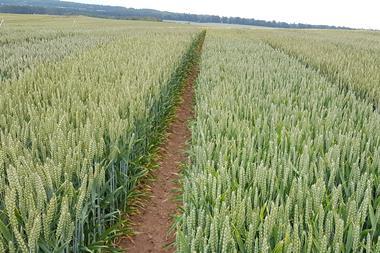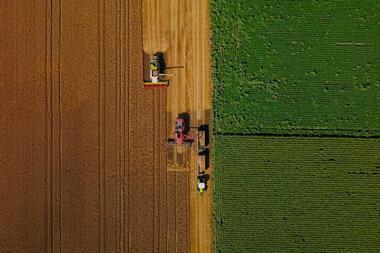
Andrew Tindall, patent attorney at Potter Clarkson, discusses the need for more diverse and drought resilient wheat crops, and the benefits that latest agricultural tech advances could have on health:
“The challenges facing UK wheat are well known. Consumer demand is outstripping supply, even as the gluten-free sector continues to grow, while climate change is making it harder to successfully grow wheat.
According to published research, global wheat yield loss by the end of the century is predicted to be 7%, in the best-case scenario, and rising to as high as 22% if emissions continue to rise unmitigated.
The UK is not expected to escape these effects and there remains a need to improve wheat varieties in order to service demand whilst ensuring our daily bread provides adequate nutrition.
As global warming affects rainfall patterns, breeding wheat varieties with improved drought resistance is an appealing prospect. Modern plant breeding utilises extensive genetics and genomics to aid this process, however this remains difficult to implement in wheat, where complex genetics make identifying the genes responsible for drought resistance challenging.
TraitSeq, a spin-out of the Earlham Institute in Norwich, seeks to solve this problem. It applies cutting-edge AI to accurately predict complex agricultural traits and provide breeders with targets for their breeding strategies. Combined with new precision tools like gene editing, which is increasingly viewed by regulators as non-GMO, new wheat varieties could be years, rather than decades, away.
In addition to mitigating the effects of climate change on wheat growing, technology could help avoid it entirely.
Regenerative practices like pasture cropping – growing a blend of different varieties alongside livestock and cover cropping as used by flour supplier Wildfarmed – can trap carbon in the soil. Whilst this technology is ancient, new innovations can supercharge the approach.
For example, companies like FA BioAg are using soil microbes to develop biofungicides and biofertilisers for wheat, and this could be combined with regenerative practices to produce more grain alongside farming carbon.
Gluten sensitivity could one day be a thing of the past too. US-based IngateyGen are already using gene editing to develop hypoallergenic peanuts and, whilst removing gluten from wheat entirely is clearly undesirable, scientists may be able to engineer a modified structure that it does not trigger a response.
Indeed, wheat might one day even improve health. HotHouse Therapeutics, another UK spinout, is introducing new biosynthetic pathways into plants to produce pharmaceutical products, with the potential to be used with other medicines, vitamins, and nootropics, to produce wheat that not only nourishes but heals.
Despite its challenges, there are important and potentially lucrative opportunities for innovators in wheat technology, especially in the UK. An enviable biotechnology and plant science base can be combined with an extensive government commitment to boost food security through science and innovation.
Whilst the future of wheat farming in the UK is unknown, it is indisputable that the country is positioned to take a leading role in pioneering innovation.”

Andrew Tindall’s expertise lies in helping innovators develop and execute their patent strategy across a broad range of biotechnologies.
He has a special interest in the technologies shaping the futures of food and agricultural sciences, combining his background in plant sciences with a passion for smallholding, but works across technical areas including antibody therapeutics, digital health, and precision oncology.
Drawing on his practical record in obtaining protection around Europe, the US, Asia, and Latin America, he is able to guide his clients at Potter Clarkson through drafting and prosecution of key patents worldwide. He also has extensive experience with freedom to operate projects for clients ranging from start-ups to large multinationals, allowing him to tailor due diligence advice to suit any scale, commercial needs, and budget.
































No comments yet